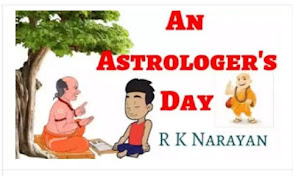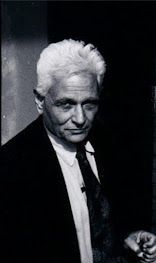Hello my dear friends
I am Nehalba Gohil and a student of M.K. Bhavnagar University department of English. We have talk about Deconstruction and deconstruct any advertisement text movie and serial.
Jacques Derrida
Jacques Derrida is a French philosopher, was born on July 15, 1930 in Algiers of Algeria, the then French colony. He is famously known as the father of Deconstruction. He has published more than 40 books on various topics such as anthropology, sociology, semiotics, jurisprudence, literary theory and so on. Some of them of “Grammatology” is very famous one that discusses theory of deconstruction and its various aspects. Jacques Derrida was the founder of “deconstruction,” a way of criticizing not only both literary and philosophical texts but also political institutions. Although Derrida at times expressed regret concerning the fate of the word “deconstruction,” its popularity indicates the wide-ranging influence of his thought, in philosophy, in literary criticism and theory, in art and, in particular, architectural theory, and in political theory. Derrida died in Paris on October 8, 2004.
Jacques Derrida first read his paper Structure, Sign and Play in the Discourse of Human Sciences (1966) at the John Hopkins International Colloquium on “The Language of Criticism and the Sciences of Man” in October 1966 articulating for the first time a post structuralist theoretical paradigm. This conference was described by Richard Macksey and Eugenio Donata to be
Derrida embraces this decentred universe of free play as liberating, just as Barthes in 'The Death of the Author' celebrates the demise of the author as ushering in an era of joyous freedom. The consequences of this new decentred universe are impossible to predict, but we must endeavour not to be among 'those who ... turn their eyes away in the face of the as yet unnamable which is proclaiming itself (Newton, p. 154).
Definetion of Deconstruction :-
A philosophical movement and theory of literary Criticism that questions traditional assumption about certainty, identity and truth; asserts that words can only refer to other words; and attempts to demonstrate how statement about any text subvert their own meaning.
what is Deconstruction?
If we define Deconstruction meaning so it is difficult to define exact meaning. Deconstruction is not destructive activity but an inquiry into the foundations so it is not negative term.
Jacques Darrida wrote a essay on structure sign and play in discourse of human science. When we talk about what Darrida say we found that in his career we found that he has question that how we can give proper definition of something. That is why he himself never gave definition of Deconstruction.
According to Darrida what we do is differentiating one thing from the other. And for this he gave word DifferAnce.
According to M.H.Abraham’s ‘A Glossary of Literary Terms’...
“Deconstruction”, a applied in the criticism of literature,designes a theory and practice of reading that questions and claims to “subvert” or “undermine” the assumption that the system of language is based on grounds that are adequate to establish the boundaries, the coherence or unity,and the determinate meaning of literary text.Typically, a deconstructive reading sets out to show that conflicting forces within the text itself serve to dissipate the seeming definiteness of its structure and meanings into an indefinite array of incompatible and undecidable possibilities.
DIfferAnce = to differ + to defer
Deconstruction means some event or play or anything but in which some loose point is there and it's became the Deconstruction. Than we can't find any particular meanning. In a way Deconstruction is not a term that destroys the meaning, but it gives us ideas to think differently.
Good-bad
man-woman
rich-poor
white-black
What do we understand about 'Deconstruction'?
Deconstruction is an approach to understanding the relationship between text and meaning. ... Deconstruction argues that language, especially in ideal concepts such as truth and justice, is irreducibly complex, unstable, or impossible to determine.
If we can think about Deconstruction it means a new way of thinking. We can not particular emphasis on any words because we can get so many meanings from reading any text as a way of Deconstructive reading. So the meaning of Deconstructive reading is that of finding something new which is very Different to define.
How to deconstruct a text ?
Language bears within itself the necessity of its own critique. Do not naturalize what is not natural. Deconstruction insists not that truth is illusory but that truth is institutional.Deconstruction is a philosophical movement spearheaded by Ermch thinker Jacques Derrida and other critics during the 1960s.
As a literary theory, it focuses on exposing cultural lases in all texts, whether agamage in a popular book or the flashing script of a television ad
Readers engaged in deconstruction analyse words and sentences to identify inherent buses and call into question amonplace interpretations of the text. While this may sound presumptuces or cymical on the front end, deamstruction im't about destroying mening Rather, it's about undenining ingrained amimptions to view things in a new light Neuffe.
Deconstruction, as applied in the criticism of literature, designates a theory and practice of reading which questions and claims to "subvert" or "undermine" the assumption that the system of language provides grounds that are adequate to establish the boundaries, the coherence or unity, and the determinate meanings of a literary text. Typically, a deconstructive reading sets out to show that conflicting forces within the text itself serve to dimipate the seeming definiteness of its structure and meanings into an indefinite arrey of incompatible and undecidable posibilities "
First example : -
This is actual advertisement of MDH masala. When we see this add first time we find that i Rajasthani culture in add so we imagine that it's about any kind of tourism ya family related add . But after when captions was coming than we find that it's about masala.
Second example :-
This movie is about the war between India and Pakistan. But it also deconstructs the idea about women in India as well as every woman. Generally we think that women are like dolls. She can’t do labor or hard work. In this movie that tradition is broken. Gujarati women helped the Indian air force to reconstruct the runaway within 24 hours.
Conclusion :-
Thus, Derrida still remain ambiguous and interesting face in literary theory. He suggests that to go beyond philosophy, it has to be read I “a certain way” not assume there is something beyond it. We cannot say what any sing means without reference to its relations to other signs. He employs term like trace / difference / differance / supplement to explain this indeterminacy or play. He also shows by the same logic that logocentrism or phonocentrism or ‘privileging speech over writing has no validity. Stanley Fish, Miller and Paul de man also gives their view to prove the idea of deconstruction.
Thank you














